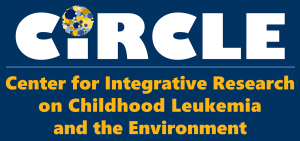

CIRCLE director, Dr. Catherine Metayer, showed that the use of prenatal vitamins and folic acid reduced the risk of acute lymphoblastic leukemia and acute myeloid leukemia among participants in the California Childhood Leukemia Study (CCLS) and the Childhood Leukemia International Consortium (CLIC).
What is folate?
Folate (or its synthetic form called folic acid) is a vitamin that is important to the healthy growth and development of a baby, and intake of folate or folic acid through food or vitamins is recommended before and during pregnancy. It is also believed that folate intake during pregnancy can affect DNA and the expression of genes, which are important for the development of healthy cells.
Prenatal folate supplementation can reduce the risk of childhood leukemia
Research from the Childhood Leukemia International Consortium (CLIC), which includes data from the CCLS, found that children of mothers who eat foods or take vitamin supplements with a lot of folate and other B vitamins before and during pregnancy have a lower risk of developing leukemia. Children whose mothers may be more likely to have vitamin deficiencies could benefit the most from prenatal vitamin supplementation. The full article on maternal prenatal vitamins is available here.
Because poor nutrition as a whole during pregnancy can disrupt fetal development and the formation of the immune system, it may also contribute to an increased risk of childhood leukemia. Using detailed dietary information before and during pregnancy, we also reported that mothers with healthy diet were indeed less likely to have a child who would later develop leukemia. The full article on maternal diet and childhood leukemia is available here.
The good news is that healthy diet during pregnancy and vitamin supplementation can help prevent the disease. See more information on how to prevent childhood leukemia here.




